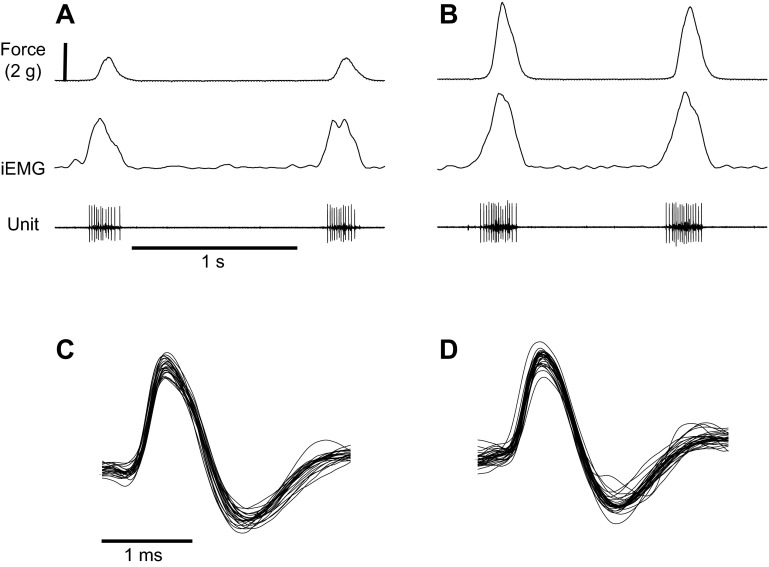Fig. 1.
Respiration-related tongue muscle force output and the discharge of a hyoglossus muscle motor unit, showing two successive breath cycles, under low-force (A) and high-force (B) conditions. From top down, traces include tongue retraction force, the rectified and integrated EMG (iEMG), and single motor unit potentials recorded with a high-impedance microelectrode. In this example, the average firing rate was 63 Hz and 74 Hz at low-and high-force conditions, respectively, a bit higher than the average values shown in Fig. 4 and Table 1. C and D: overlays of all successive spikes from the two breath cycles shown in A and B, respectively. The averaged potential in C consists of 23 spikes, while that in D consists of 31 spikes. Note the consistency of motor unit discharge, even though the muscle was actively contracting.

